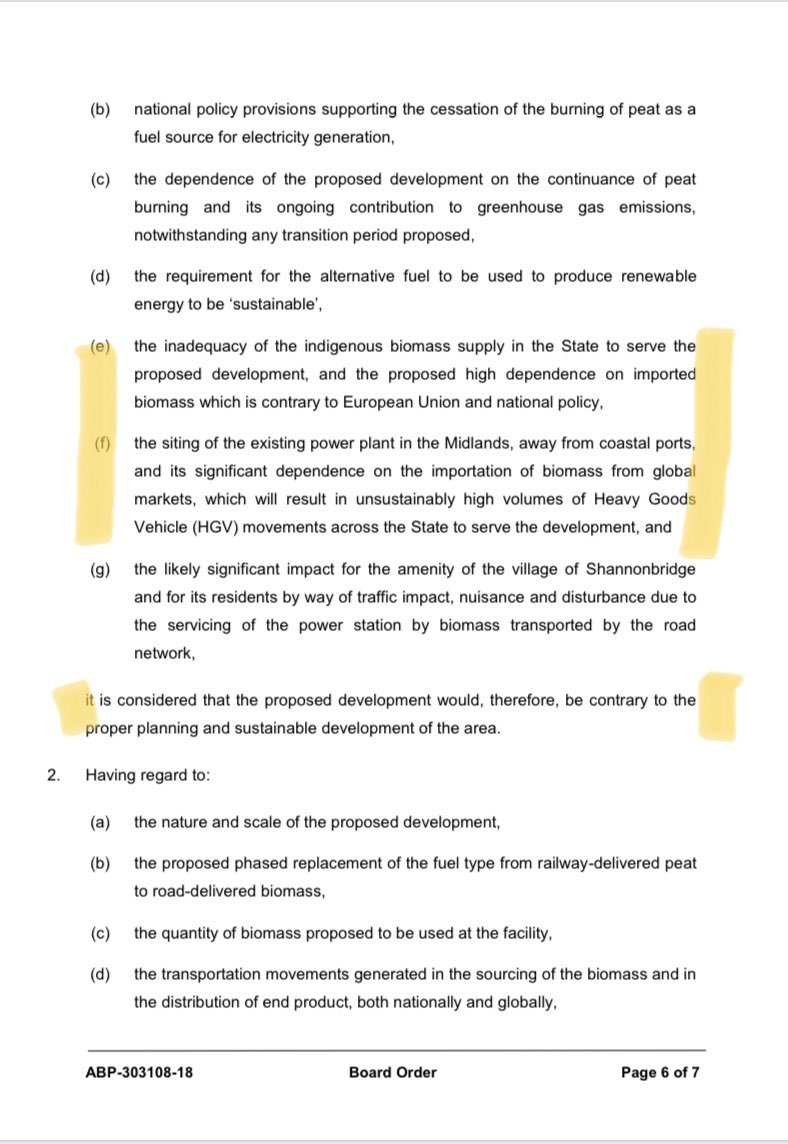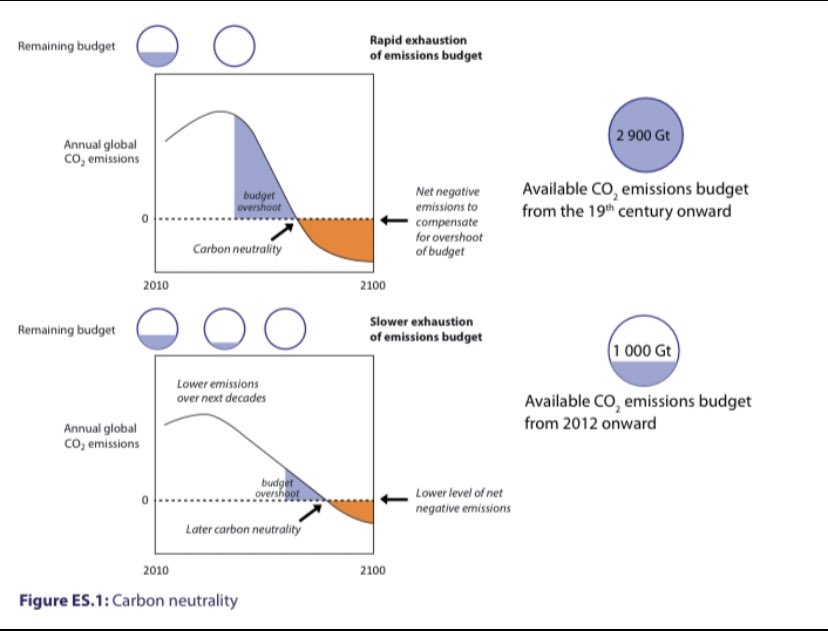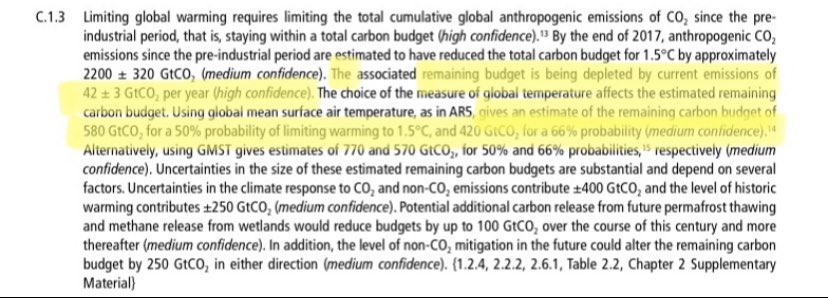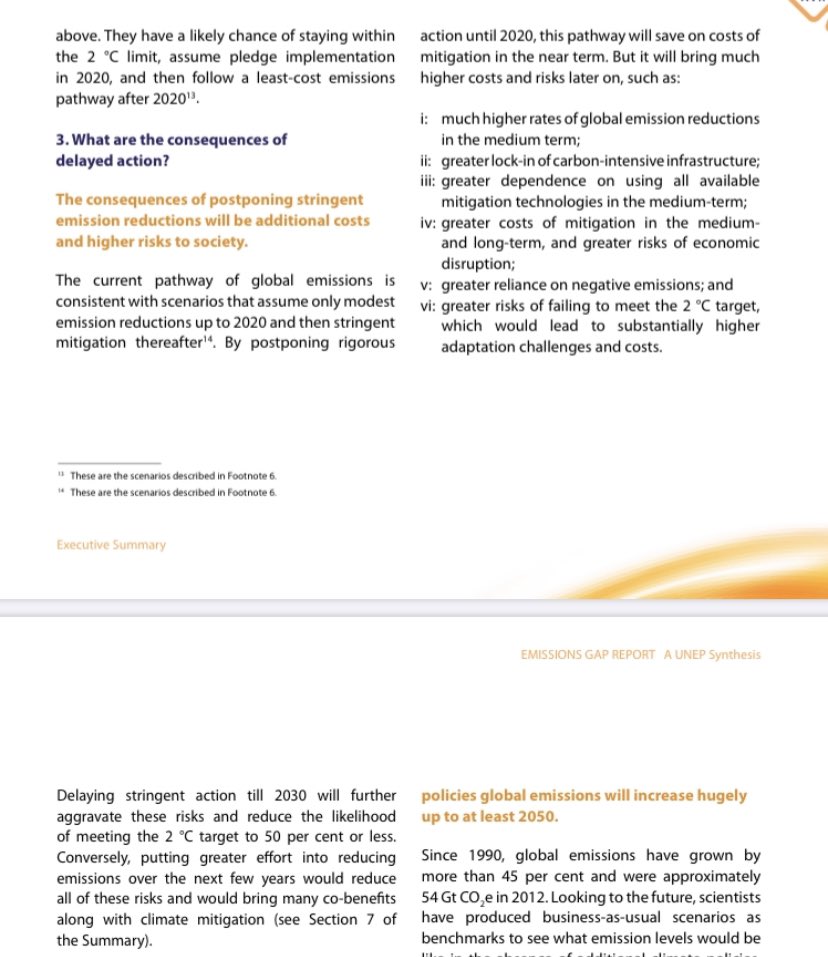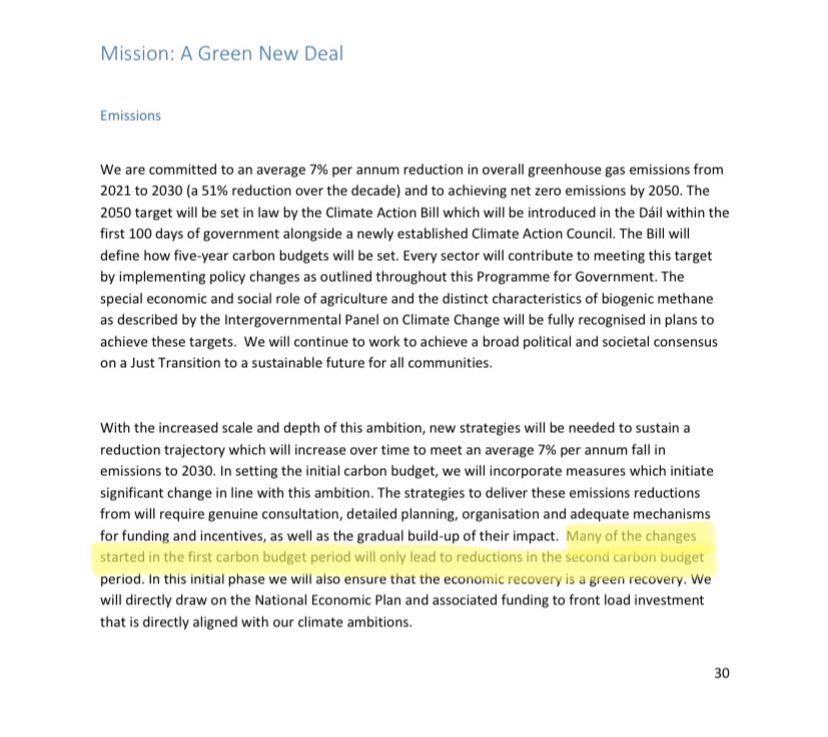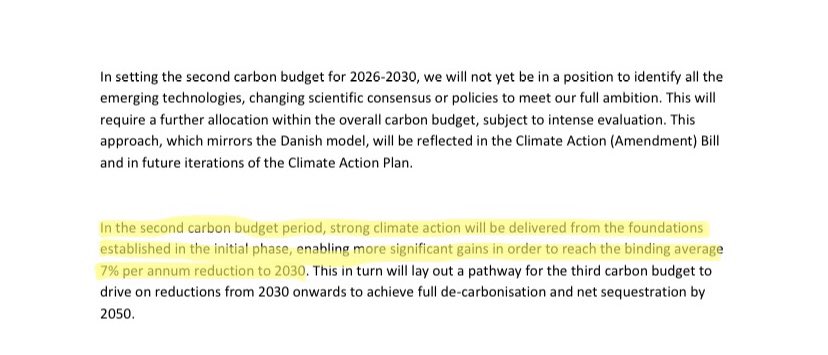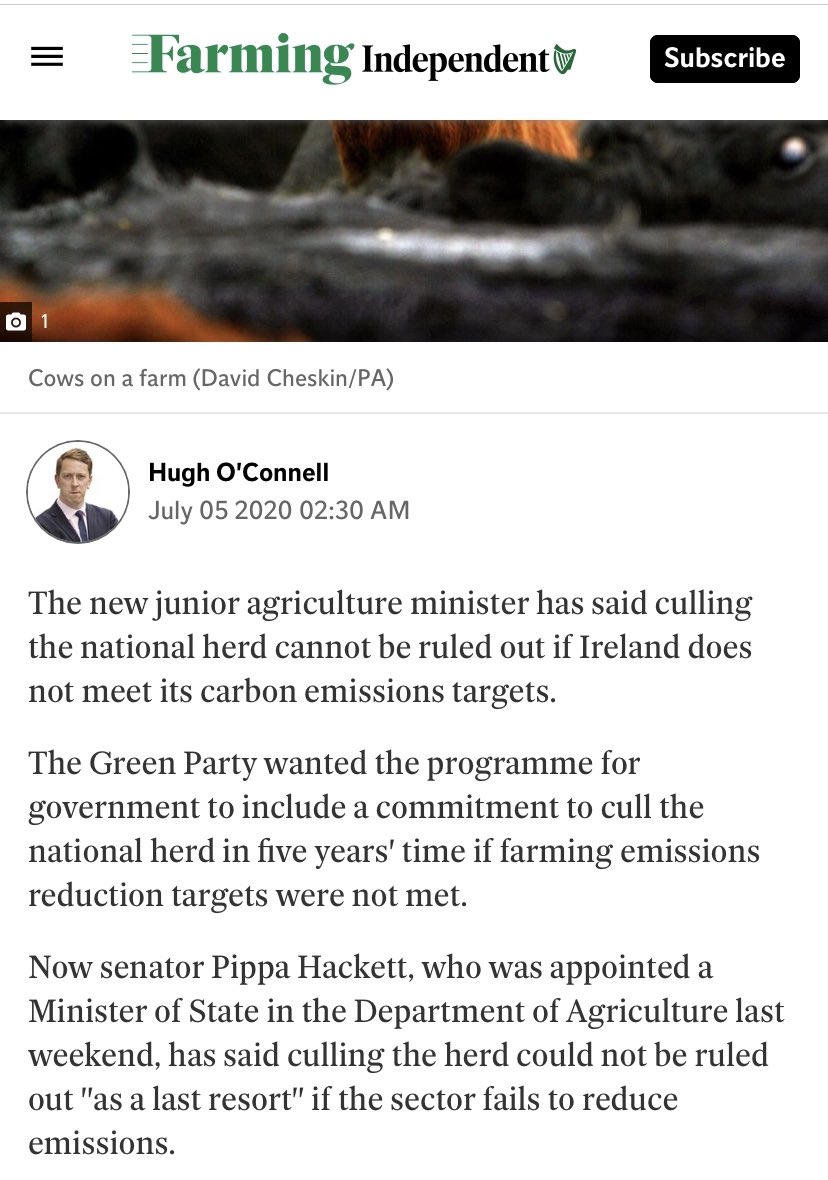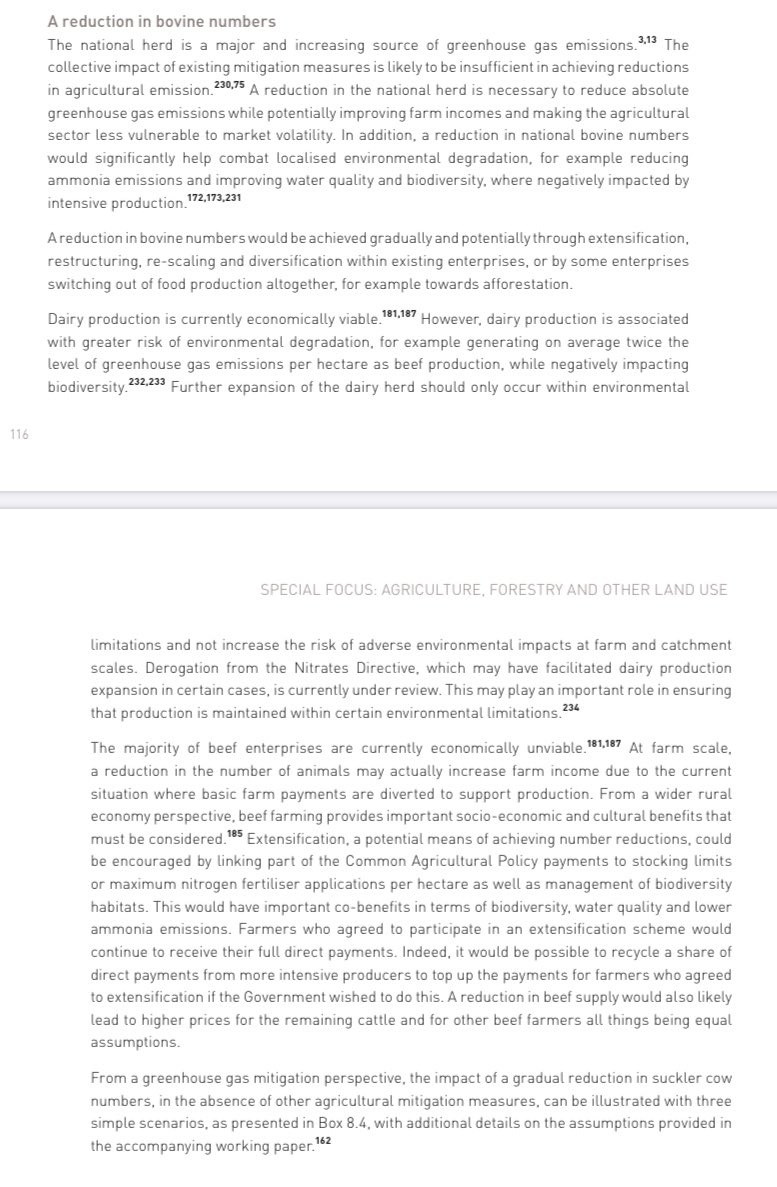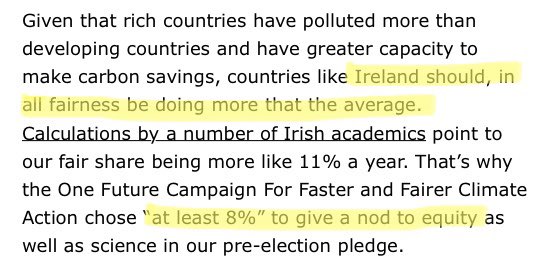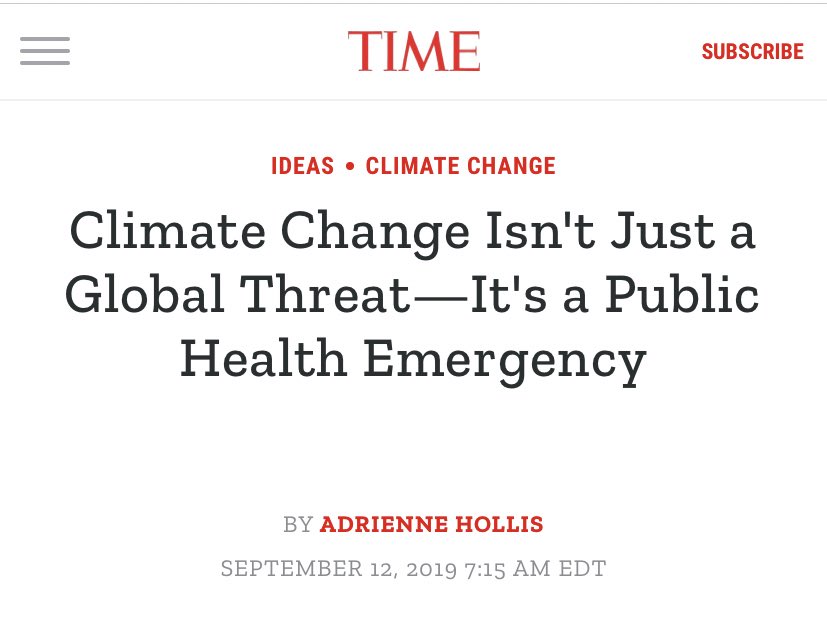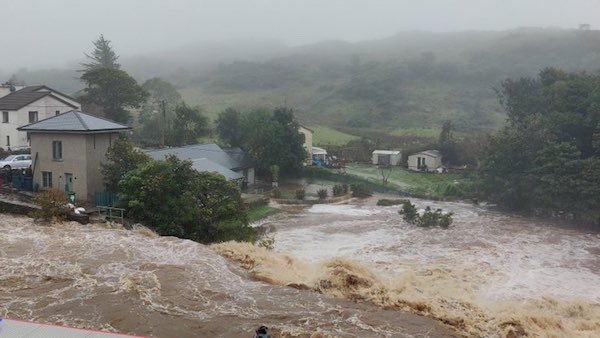THREAD on why the  Programme for Government’s 7% per annum (average) GHG emissions reduction over the next decade emphatically does not represent Ireland’s fair share or climate justice.
Programme for Government’s 7% per annum (average) GHG emissions reduction over the next decade emphatically does not represent Ireland’s fair share or climate justice.
Touches on rights-based litigation too. 1/
 Programme for Government’s 7% per annum (average) GHG emissions reduction over the next decade emphatically does not represent Ireland’s fair share or climate justice.
Programme for Government’s 7% per annum (average) GHG emissions reduction over the next decade emphatically does not represent Ireland’s fair share or climate justice. Touches on rights-based litigation too. 1/
In 2019 UNEP said that a 7.6% reduction per annum (*global average*) was needed to limit warming to +1.5C, *assuming massive CO2 removal* somehow later this century.
But has the 3rd highest emissions per capita in the EU & has contributed disproportionately to the problem. 2/
has the 3rd highest emissions per capita in the EU & has contributed disproportionately to the problem. 2/
But
 has the 3rd highest emissions per capita in the EU & has contributed disproportionately to the problem. 2/
has the 3rd highest emissions per capita in the EU & has contributed disproportionately to the problem. 2/
Having allowed our emissions to rise by c.10% between 1990 & 2020,  should be reducing its emissions by much more than the global average over the coming decade.
should be reducing its emissions by much more than the global average over the coming decade.
In terms of equity & climate justice, we should be aiming for *much more than* UNEP’s -7.6% per annum, not less. 3/
 should be reducing its emissions by much more than the global average over the coming decade.
should be reducing its emissions by much more than the global average over the coming decade.In terms of equity & climate justice, we should be aiming for *much more than* UNEP’s -7.6% per annum, not less. 3/
Excluding the massive negative emissions (which are assumed but may not be achievable), the true scale of the challenge is an annual reduction of c.15% (again, global average). 4/
How, then, will it seriously be said that the Government has “had regard to” climate justice (as required by the Climate Act) in making a new National Mitigation Plan implementing the Programme for Government’s -7% p.a. average?
5/
5/
And how is  planning now for the scale of negative emissions assumed?
planning now for the scale of negative emissions assumed?
The IPCC’s scenarios rely heavily on bioenergy with carbon capture & storage (BECCS) power plants for CO2 removal... 6/
 planning now for the scale of negative emissions assumed?
planning now for the scale of negative emissions assumed?The IPCC’s scenarios rely heavily on bioenergy with carbon capture & storage (BECCS) power plants for CO2 removal... 6/
...but NB. West Offaly peat-and-biomass power plant was recently refused planning permission in part on the basis that there was no adequate indigenous source of biomass & importing it would be unsustainable & contrary to EU & national policy. 7/
If the PfG’s -7% p.a. average is achieved (a big if),  emissions will be about -45% b/w 1990 & 2030 (NB. the UK achieved -40% *by 2020*). This falls well short of
emissions will be about -45% b/w 1990 & 2030 (NB. the UK achieved -40% *by 2020*). This falls well short of
• 50-55% EU cut proposed by European Commission
• the 60% supported by ENVI MEPs https://uk.reuters.com/article/climate-change-eu-law-idUKL8N2G74SX
8/
 emissions will be about -45% b/w 1990 & 2030 (NB. the UK achieved -40% *by 2020*). This falls well short of
emissions will be about -45% b/w 1990 & 2030 (NB. the UK achieved -40% *by 2020*). This falls well short of• 50-55% EU cut proposed by European Commission
• the 60% supported by ENVI MEPs https://uk.reuters.com/article/climate-change-eu-law-idUKL8N2G74SX
8/
The German government has recently been taken to court by a group of youth plaintiffs supported by Greenpeace & Germanwatch alleging that the German Federal Climate Law’s 55% target for 2030 (compared to 1990) infringes their rights under German law, in light of the ECHR. 9/
In other words, there is ongoing international precedent for rights-based climate litigation pursuant to the ECHR attacking an aim that is much more ambitious than  ‘s (55% vs our 45%).
‘s (55% vs our 45%). 
10/
 ‘s (55% vs our 45%).
‘s (55% vs our 45%). 
10/
In 2014, in its Emissions Gap report, UNEP produced this useful image showing the consequences of rapidly depleting the remaining carbon budget (for +2C), as we are doing now: we overshoot the budget & then need to remove huge amounts of CO2 from the atmosphere, if we can. 11/
The IPCC notes that globally we’re emitting ~42 GtCO2 per year & in 2018 we had a remaining carbon budget of ~420 GtCO2 for a 66% chance of limiting heating to +1.5C.
So in 2018, 10 years of current emissions was all that remained of the global carbon budget for +1.5C. 12/
So in 2018, 10 years of current emissions was all that remained of the global carbon budget for +1.5C. 12/
Re the consequences of delayed action, UNEP says: greater costs, steeper future reductions reqd, greater risks of failing to limit temp rise, greater future reliance on negative emissions technologies (if these exist & can be deployed at scale w/out unacceptable impacts). 13/
The Government does not dispute the IPCC’s advice or UNEP’s, as evidenced by the @climatecaseire legal proceedings.
Yet the PfG appears to have delay hardwired into its DNA (pics), via its stated aim of an *average* 7% per annum GHG emissions reduction from 2021 to 2030. 14/
Yet the PfG appears to have delay hardwired into its DNA (pics), via its stated aim of an *average* 7% per annum GHG emissions reduction from 2021 to 2030. 14/
This seems to be a political compromise based on
• expectation management: incl. covering the eventuality that emissions don’t fall much (if at all) over the next 5 yrs
• a belief(?) that 7% p.a. average can in fact be delivered from 2021-2030 by backloading in this way. 15/
• expectation management: incl. covering the eventuality that emissions don’t fall much (if at all) over the next 5 yrs
• a belief(?) that 7% p.a. average can in fact be delivered from 2021-2030 by backloading in this way. 15/
The notion of pushing steep reductions out a little further is clear not just from the PfG but also from its negotiation.
Consider this reported Green Party ask that was reportedly rejected: reduction of cattle numbers *in 5 years* if agri emissions don’t fall by then. 16/
Consider this reported Green Party ask that was reportedly rejected: reduction of cattle numbers *in 5 years* if agri emissions don’t fall by then. 16/
Such a reduction was of course recommended by the Climate Change Advisory Council in its Annual Review 2019. 17/
The expectation management point taps into the (no doubt true) notion that *some* (PfG says “many”) interventions will have a delayed pay off in terms of emissions reductions.
But many interventions could result in rapid reductions. 18/
But many interventions could result in rapid reductions. 18/
Consider, for example, the emissions reduction policies in the Netherlands following the Supreme Court’s ruling in the Urgenda case. 19/ https://www.theguardian.com/world/2020/apr/24/dutch-officials-reveal-measures-to-cut-emissions-after-court-ruling
And see this thread re the consequences of delaying emissions reductions in  until later this decade. (Full report in thread & excerpt in pic.)
until later this decade. (Full report in thread & excerpt in pic.)
Key conclusion: “early and deep emission reductions are therefore likely required, starting immediately” 20/ https://twitter.com/swimsure/status/1286266617173811200
 until later this decade. (Full report in thread & excerpt in pic.)
until later this decade. (Full report in thread & excerpt in pic.)Key conclusion: “early and deep emission reductions are therefore likely required, starting immediately” 20/ https://twitter.com/swimsure/status/1286266617173811200
If we exceed the budget for 1.5C (~8 yrs left on current trends), we’ll be in even more dangerous territory, tipping points, etc.
A key Q: have those who are content w/PfG’s -7% p.a over next decade abandoned limiting heating to +1.5C & now seek to limit damage above this? 21/
A key Q: have those who are content w/PfG’s -7% p.a over next decade abandoned limiting heating to +1.5C & now seek to limit damage above this? 21/
Some might argue for this on grounds of, say, pragmatism or political realism - but if this is the case it should be made clear now.
And if it’s *not* the case, those content with the PfG’s 7% p.a. over the next decade shld show how it’s consistent w/1.5C & climate justice. 22/
And if it’s *not* the case, those content with the PfG’s 7% p.a. over the next decade shld show how it’s consistent w/1.5C & climate justice. 22/
This is the context in which the “don’t let perfect be the enemy of good” debate arises. The good-to-perfect spectrum is much narrower than many seem to think.
Coral reefs will decline by 70-90% at +1.5C & by >99% at +2C.
+1.5C is not “good”; above 1.5C is very very bad.
23/
Coral reefs will decline by 70-90% at +1.5C & by >99% at +2C.
+1.5C is not “good”; above 1.5C is very very bad.
23/
This isn’t party political. I don’t see any party w/policies reflecting the science or climate justice.
 Civil society needs to step up now. Giving a ‘nod to equity’ is not enough.
Civil society needs to step up now. Giving a ‘nod to equity’ is not enough.
What’s needed, surely, is a huge ramping up of ambition, urgency & action, starting now. 24/
 Civil society needs to step up now. Giving a ‘nod to equity’ is not enough.
Civil society needs to step up now. Giving a ‘nod to equity’ is not enough.What’s needed, surely, is a huge ramping up of ambition, urgency & action, starting now. 24/
How long before NPHET is asked to help tackle climate breakdown, the greatest public health emergency we’ve ever faced? 25&End/ @ronan_glynn @EamonRyan @MichealMartinTD @LeoVaradkar @DonnellyStephen @cathmartingreen

 Read on Twitter
Read on Twitter